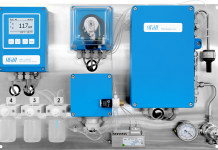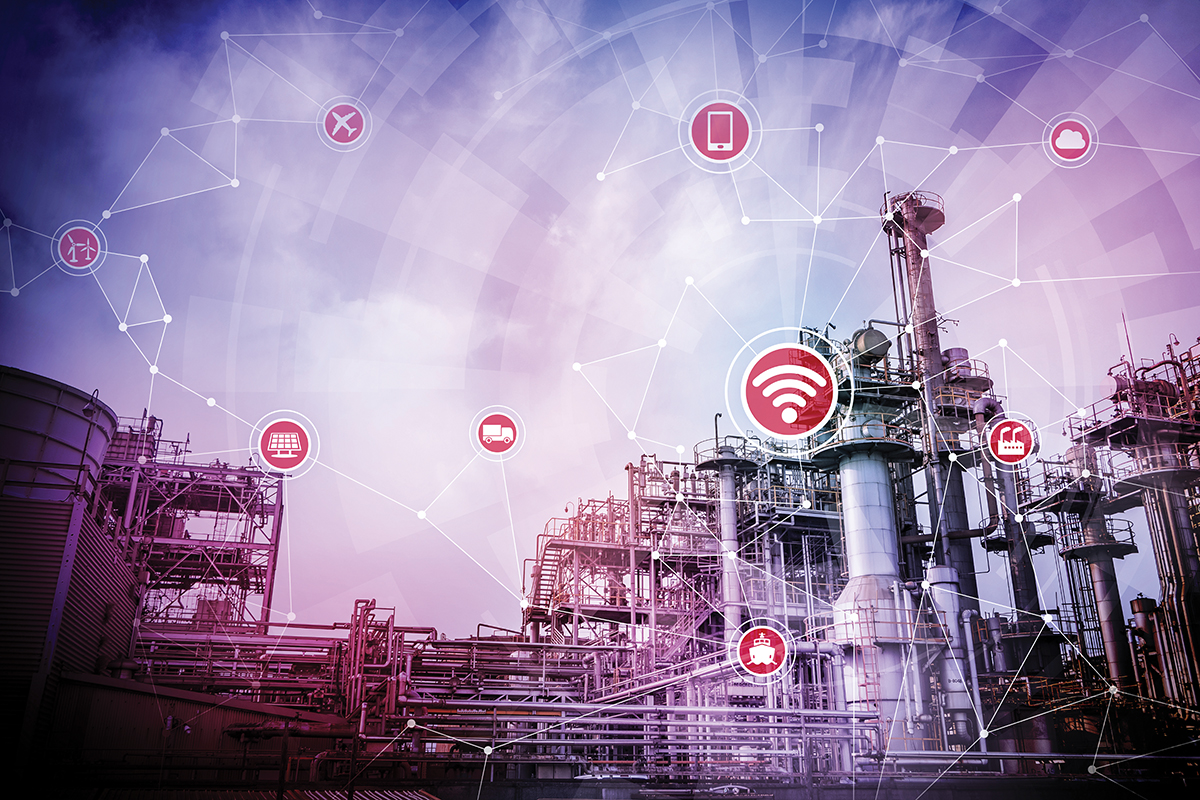Every so often a development emerges that represents a true industrial revolution. In the 19th Century it was the dramatic advance of mechanisation and the harnessing of electricity, in the late 20th Century it was the rise of the computer, in the early years of the 21st Century it has been the appearance of The Cloud. Now, we have Industry 4.0 and the emergence of the Internet of Things (IoT) – and the impact on industries including the chemicals sector is going to be massive.
Industry 4.0 relates to the way technology talks to each other and, for industry, that means creating the ‘smart factory’ in which systems communicate in real time via the Internet.
At Industry 4.0’s heart is a growing realisation that huge amounts of time and effort is being wasted because too many production and back-office systems are not connected.
That disconnect means that skilled personnel ranging from manufacturing teams to sales staff find themselves repeating the same tasks when, if managed properly, their IT could do it in a fraction of the time.
For instance, it makes no sense if a machine is producing data that impacts on another piece of equipment but the information is not available to its operators without having to go through a complicated process to obtain it.
How much better, supporters of Industry 4.0 argue, if the data from Machine One is automatically made available to Machine Two?
The benefits for companies embracing Industry 4.0 is that more data integration results in better planning for production and logistics and makes them more cost-effective.
It all makes perfect sense but there are concerns for many companies, including the need for high investment at the beginning of the process and anxieties surrounding data security as the activities of hackers make organisations feel more vulnerable.
Concerns aside, the Internet of Things and Industry 4.0, also known as Big Data, are here to stay and ‘smart factories are already beginning to appear in the chemical sector.
In the smart factory, sensors can automate tasks, report performance levels, flag anomalies and generate alerts giving companies new insights into their business processes and performance and allowing them to run predictive analytics to forecast problems before they occur.
That is useful because, if you can predict the failure of a key piece of equipment well in advance of the breakdown, you can take action to prevent it. Avoiding a serious failure and resultant downtime saves money and prevents damage to reputation.
Analysts suggest that when more flexible access to information happens, it brings about up to 40% higher employee productivity.
Imagine a scenario when a maintenance worker receives an instruction on a tablet to change a valve complete with information on the exact nature of the problem.
The worker receives step-by-step 3-D instructions to follow until the new valve is installed. After that, the worker confirms that the repair is done and the information is instantly available to management, all of which saves time and cost and increases transparency.
Analysts believes that the chemical sector can lead the way. With more than 20 million people employed, annual sales of $5 trillion and clients in everything from agriculture and automotive to construction and pharmaceuticals, changes in the chemicals industry are likely to have a ripple effect on a number of other industries.
Advanced technologies relevant to the chemicals industry — such as the Internet of Things, advanced materials, additive manufacturing, advanced analytics, artificial intelligence and robotics — are already bringing about major changes.
R&D is among those areas to benefit. Because R&D demands heavy investment, chemicals companies are looking at big data to predict the outcome of that investment. For example, advanced analytics helps researchers to understand the chemical properties of available materials and consider possible new combinations.
Away from the plants themselves, Industry 4.0 helps chemicals companies plan their supply chains in many ways, including:
By monitoring chemicals in transit, companies are able to better manage their supply chain because businesses ranging from transport operators to technology providers can work toward common objectives
Chemicals companies can better forecast demand for products and expand or contract their production capacities accordingly
Of course, the overriding factor that will convince companies is a beneficial impact on the bottom line and there are clear signs that the message is getting through across the manufacturing sector.
A new global study called The Internet of Things: Today and Tomorrow, published by Aruba, a Hewlett Packard Enterprise company, reveals that IoT will soon be widespread as 85% of businesses plan to implement it by 2019.
The research questioned 3,100 IT and business decision-makers across 20 countries and shows that, while virtually all business leaders (98%) have an understanding of IoT, many are unclear about what it actually means for their business.
Aruba studied a variety of sectors and revealed that more than six in ten (62%) respondents in industry have already implemented IoT; 83% reported increased business efficiency.
However, the study also uncovered a number of obstacles that are preventing IoT from delivering greater business impact; the the cost of implementation (50%), maintenance (44%) and integration of technology (43%) were highlighted as key issues.
The study found that 84% of organisations have experienced an IoT-related security breach and more than half of respondents said that external attacks are a key barrier to embracing the technology.
Chris Kozup, vice president of marketing at Aruba, said: “With the business benefits of IoT surpassing expectations, it’s no surprise that the business world will move towards mass adoption by 2019. With many executives unsure of how to apply IoT to their business, those who succeed in implementing IoT are well positioned to gain a competitive advantage.”
Author Kevin Ashton, in researching his ebook Making Sense of IoT, commissioned by Aruba, also confirmed that IoT brings benefits across a variety of sectors. Only 16% of business leaders surveyed had predicted a large profit gain from their IoT investment yet post-adoption 32% realised increases. Similarly, only 29% of executives expected IoT to result in business efficiency improvements, whereas actual results show that 46% experienced gains.
Kevin said: “Since its inception in 1999, the Internet of Things has been ridiculed, criticised and misunderstood and yet here we are, less than two decades later, in a world where tens of thousands of organisations are saving and making hundreds of millions of dollars from the Internet of Things, using cars that drive themselves, subway stations that sense passengers, algorithms that diagnose deadly diseases using phones, and many other once apparently-impossible technologies.
“The future promises far more amazing things. The most important decision you can make now is how to be a part of it.”
One thing is certain: Industry 4.0 will impact on the way industry works and those chemical companies that are introducing it are already reaping the benefits.
Industry 4.0 is no longer the technology of the future. It is the here and now.














